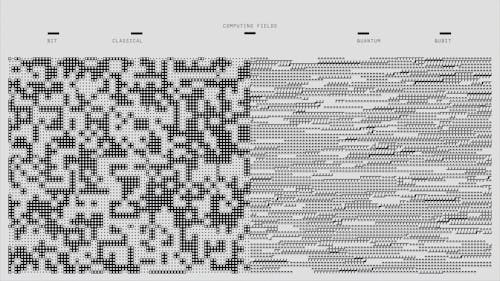Understanding Quantum Computing and Its Potential
Quantum computing is one of the most exciting and transformative areas of modern technology. It promises to revolutionize fields ranging from cryptography and artificial intelligence to material science and medicine. At its core, quantum computing leverages the principles of quantum mechanics to solve problems that are currently out of reach for traditional computers. While classical computers store and process information in binary (using bits), quantum computers use quantum bits, or qubits, which can represent and store information in multiple states simultaneously. This property of superposition, along with quantum entanglement, allows quantum computers to perform complex calculations at exponentially faster speeds than their classical counterparts.
The potential applications of quantum computing are vast, and its impact could be felt across virtually every sector of society. Despite being in the early stages of development, quantum computing holds the promise of unlocking new possibilities that could fundamentally change the way we interact with and utilize technology.
How Quantum Computing Works
To understand the role of quantum computing in modern technology, it’s important to first grasp how it works. Traditional computers process information using bits, which can represent either a 0 or a 1. Quantum computers, however, rely on qubits, which can exist in a state of both 0 and 1 simultaneously, thanks to the phenomenon of superposition. This enables quantum computers to explore many possible solutions to a problem at once, drastically increasing their processing power.

Another critical property of quantum computing is entanglement. When qubits become entangled, the state of one qubit is directly related to the state of another, regardless of the physical distance between them. This creates a system of interconnected qubits that can work together in ways that classical systems cannot. By utilizing both superposition and entanglement, quantum computers can solve certain types of problems much more efficiently than traditional computers.
Applications of Quantum Computing in Various Sectors
- Cryptography and Cybersecurity
One of the most widely discussed potential applications of quantum computing is in the field of cryptography. Current encryption methods, such as RSA and ECC (Elliptic Curve Cryptography), rely on the difficulty of factoring large numbers or solving complex mathematical problems. These encryption schemes are considered secure because classical computers would take an impractically long time to crack the codes.
However, quantum computers can solve these problems exponentially faster. Shor’s algorithm, a quantum algorithm, can factor large numbers much more efficiently than classical algorithms. This could render current encryption methods obsolete and pose a significant challenge to cybersecurity. To counter this, researchers are working on developing quantum-resistant cryptographic methods, which will be crucial for securing data in a future where quantum computers are widely available.
- Drug Discovery and Molecular Modeling
Quantum computing could have a profound impact on the field of medicine, particularly in drug discovery and molecular modeling. Traditional computers are limited in their ability to simulate the behavior of complex molecules due to the sheer computational power required. However, quantum computers, with their ability to process vast amounts of data simultaneously, can simulate the interactions between atoms and molecules in ways that classical computers simply cannot.
This capability could lead to breakthroughs in drug development, as quantum computers could model the interactions of molecules with unprecedented accuracy. This would allow scientists to develop new drugs more quickly and precisely, potentially revolutionizing the pharmaceutical industry by making the process of discovering life-saving treatments faster and more efficient.
- Optimization Problems in Industry
Quantum computing also holds promise in solving optimization problems, which are common in industries ranging from logistics and manufacturing to finance and energy. Optimization problems involve finding the most efficient solution from a set of possible solutions, such as determining the best route for delivery trucks, optimizing energy usage in a smart grid, or minimizing costs in a manufacturing process.
Classical computers can handle many optimization problems, but they struggle as the complexity of the problem increases. Quantum computers, on the other hand, can evaluate many possible solutions simultaneously, allowing them to find the optimal solution more quickly and accurately. This could lead to significant improvements in efficiency, cost savings, and productivity in a wide range of industries.
- Artificial Intelligence and Machine Learning
Another area where quantum computing could have a transformative impact is artificial intelligence (AI) and machine learning (ML). AI and ML algorithms typically rely on vast amounts of data and complex computations to train models and make predictions. Quantum computing can speed up these processes by handling larger datasets and more complex calculations much faster than classical computers.
For instance, quantum machine learning algorithms could help identify patterns in data more efficiently, leading to more accurate models and faster decision-making. This could have a wide range of applications, from improving recommendation systems to advancing autonomous vehicles and healthcare diagnostics.
- Climate Modeling and Environmental Science
Quantum computing could also play a key role in addressing some of the most pressing challenges related to climate change and environmental sustainability. Accurate climate modeling requires vast amounts of data and complex simulations, which are often limited by the capabilities of classical computers.
Quantum computers could process large datasets more quickly and simulate the interactions between various factors affecting the climate in more detail. This could lead to more accurate predictions of climate change and help scientists develop more effective strategies for mitigating its impact. Additionally, quantum computing could aid in the development of new materials and technologies for energy storage, carbon capture, and renewable energy sources.
Challenges in Quantum Computing
While the potential benefits of quantum computing are enormous, there are several challenges that must be addressed before it can be widely adopted. One of the primary challenges is the issue of quantum decoherence. Qubits are highly sensitive to external disturbances, and even the slightest interference can cause them to lose their quantum state. This makes it difficult to maintain stable and reliable qubits over extended periods of time, a crucial requirement for practical quantum computing.
Another challenge is the need for specialized hardware and infrastructure. Quantum computers require extremely low temperatures to operate, and the equipment needed to achieve and maintain these conditions is expensive and complex. As a result, quantum computing research is currently limited to a few specialized labs and companies.
The Road Ahead for Quantum Computing
Despite these challenges, progress in the field of quantum computing is accelerating. Companies and research institutions around the world are working tirelessly to overcome the technical hurdles and unlock the full potential of quantum computing. While it may take several years before quantum computers are widely available for everyday use, the groundwork is being laid for a future in which quantum computing is an integral part of our technological landscape.
In the meantime, classical computers and quantum computers will likely complement each other, with each type of computer excelling in different areas. Classical computers will continue to handle everyday tasks, while quantum computers will be reserved for solving highly complex problems that are currently beyond the capabilities of traditional computing.

Conclusion
Quantum computing is a rapidly developing field with the potential to revolutionize industries ranging from cryptography and drug discovery to artificial intelligence and climate modeling. While the technology is still in its infancy, the possibilities it offers are immense. As researchers continue to refine quantum algorithms and improve hardware, quantum computing could reshape the technological landscape in ways we have yet to fully imagine. The future of quantum computing is bright, and its role in modern technology will only grow more significant as we unlock its full potential.





